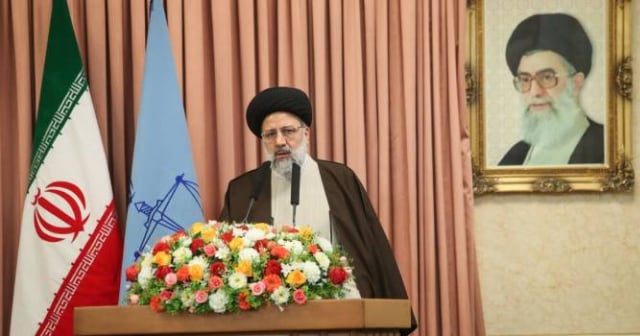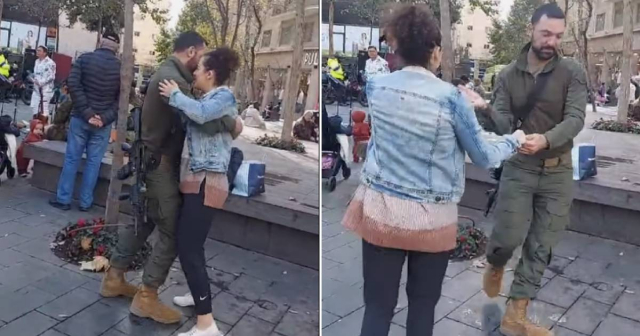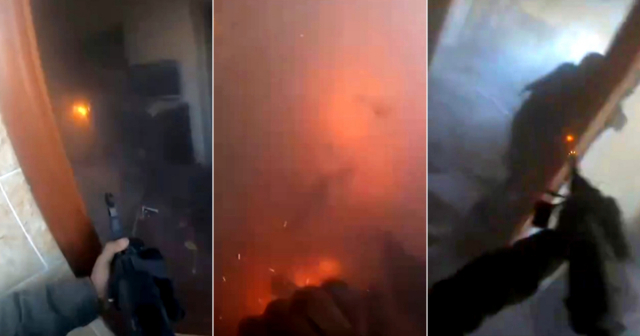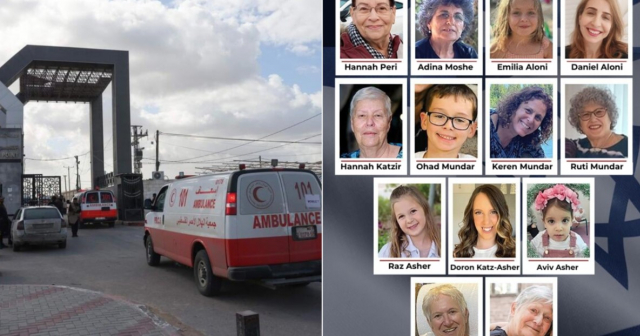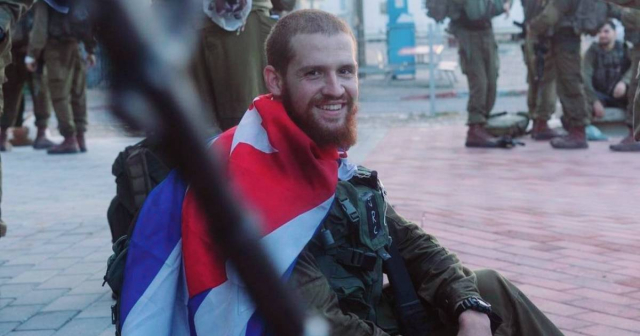The large-scale attack that began this Saturday at night at nightIslamic Republic of Iran, which launched more than 300 drones and missiles over the territory ofIsrael, was 99% neutralized according to official sources in that country.
Approximately 30 cruise missiles, 170 drones and 120 ballistic missiles were launched by Iran in a barrage that would have been lethal had it not been for the Israeli defense system and its Iron Dome, which intercepted almost all of the projectiles.
Only a few ballistic missiles penetrated Israel's defenses, hitting an air force base in Nevatim, in the Negev Desert, with minor damage to its infrastructure, according toThe confidential.
"We have intercepted 99% of threats towards Israeli territory. This is a very important strategic achievement," he saidAvichay Adraee, spokesperson for the Israel Defense Forces (IDF). However, Israeli media reported that a 10-year-old girl was injured in the south of the country after falling debris from an intercepted Iranian drone.
At two in the morning this Sunday (Tel Aviv time) alarms began to sound throughout the country with the arrival of the first suicide drones launched from Iranian territory.
Images shared on social networks and the media showed the flashes that illuminated the sky, the result of the explosions of the intercepted projectiles, some of them at high altitudes, even above the atmosphere.
American fighter jets, mobilized and on alert for several days, joined the interception work over the airspace of Syria and Jordan, before reaching Israel.
The barrage of rockets and drones launched against Israel is the Tehran regime's response to the air attack that killed seven prominent members of the Revolutionary Guard last week, including two Iranian generals, who were in the Iranian consulate in Damascus, in Syria.
Iran then accused Israel of being behind that attack and promised revenge. After several warnings from Western intelligence sources, this Sunday Iran decided to launch the first direct attack in its history against Israel, from Iranian soil.
The unprecedented attack also included the launch of missiles launched from Lebanon and Yemen by the Iranian allies of Hezbollah and the Houthis, and paints an even more complicated scenario in the region, in full turmoil afterthe terrorist attack carried out by Hamas on October 7, which left 1,159 Israelite fatalities and motivated theIsrael's armed incursion into the Gaza Strip which, so far, leaves more than 33,000 Palestinians dead.
"With God's help together we will defeat all our enemies, the state of Israel is strong," declared the Israeli prime minister,Benjamin Netanyahu, after knowing the start of the Iranian operation.
For its part, the Iranian Revolutionary Guard issued a statement in which they stated that "in response to the crimes of the Zionist regime in its attack on the consular section of the Iranian embassy in Damascus, the IRGC air force has attacked targets in territories of the Zionist regime with dozens of drones and missiles.
Middle East facing a new scenario
In anticipation of Israel's response, Tehran warned that "any country that allows its airspace or soil to be used to attack Iran will receive a firm response from us."
At 06:00 on Sunday morning (local time), the Israeli Army would have organized an assessment of the situation to decide how to respond to the Iranian attack, according to an IDF statement. Dozens of Israeli planes have flown over Israeli airspace overnight, ready to shoot down Iranian planes that might try to access the airspace.
Meanwhile, Israeli authorities have suspended attendance at schools and prohibited meetings and demonstrations of more than 1,000 people.
In addition to the attack on the Iranian consulate in Damascus, Israel could be behind other operations against senior Iranian military commanders. According to El Confidencial, the air attack that killed at the end of DecemberSayyed Razi Mousavi, the most influential Iranian commander in Syria at the time, was the work of Israel. Three days later, another attack killed 11 Revolutionary Guard leaders at the Damascus airport and on January 20, another five, in a new attack in Damascus.
Until the recent barrage of drones and missiles, Iran had been responding to these operations with the execution of alleged Iranian collaborators of the Mossad (Israel's secret services) and with smaller attacks against US targets in the area.
"From our point of view, the matter can be considered closed. If Israel makes another mistake [with its reaction to the attacks on Saturday night], our response will be much harsher," Iran's mission to Iran published this Sunday. United Nations in a statement released on social networks.
Claiming “self-defense” (Article 51 of the United Nations Charter), the ayatollah regime issued a warning to Israel's allies, emphasizing that “the United States must stay out!”
In this sense, the Chief of Staff of the Armed Forces of the Islamic Republic of Iran,Mohamed Bagheri, warned on state television that the response will be much greater if Israel retaliates.
Given this scenario, several international experts consulted indicated, the escalation does not seem destined to stop.
What do you think?
COMMENTFiled in:

